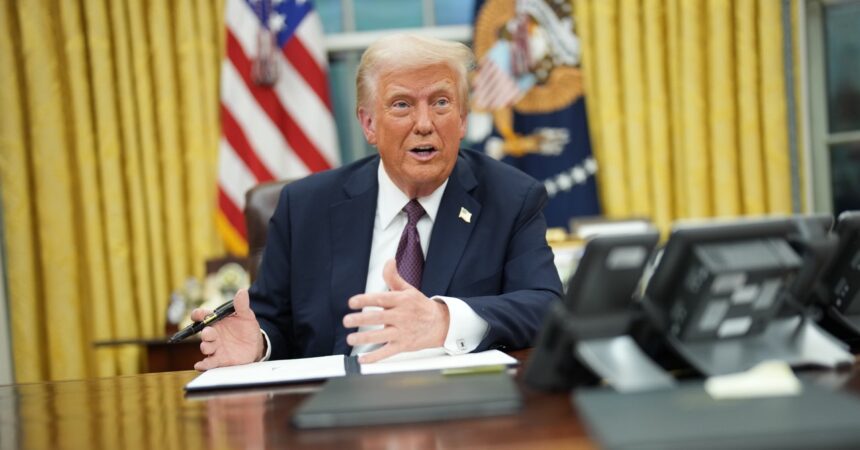In 2020, a group of 15 prominent public health leaders in the United States collaborated to pen an article for The Lancet—a prestigious medical journal renowned worldwide—condemning Donald Trump’s plan to withdraw the US from the World Health Organization (WHO). This decision was later reversed by President Biden before it could take effect.
Fast forward nearly five years, and one of the first significant actions of Trump’s second term is once again to begin the process of withdrawing the US from the WHO. This move is already sparking considerable controversy and the possibility of legal challenges.
According to a joint resolution from 1948, which was passed by both houses of Congress, any withdrawal necessitates the US providing one year’s notice to the WHO. However, it seems that Trump intends to withdraw immediately and bypass congressional approval.
“The executive order declares an immediate withdrawal from the WHO, without seeking authorization from Congress, and it fails to provide the required one-year notice,” states Lawrence Gostin, a public health law professor at Georgetown University Law Center in Washington, DC, and a coauthor of the 2020 Lancet article. “In my opinion, this is unsafe and unlawful, and it should be contested in court.”
Trump has a history of disparaging the WHO, having previously labeled the organization as “corrupt,” accusing it of exploiting the US, and “seriously mishandling and obscuring” the spread of Covid-19. Traditionally, the US has been one of the WHO’s largest financial backers, contributing an estimated fifth of the organization’s overall budget. Between the years 2022 and 2023, the US allocated close to $1.3 billion to the WHO.
Nonetheless, Gostin and other experts express deep concern regarding the repercussions of a US withdrawal on the nation’s capacity to tackle ongoing threats from infectious diseases. While the WHO addresses a broad array of topics, from guidance on essential medicines to public policy on issues like tobacco and drug use to road safety, its most significant impact arguably lies in the surveillance of emerging diseases, such as bird flu, and the coordination of international responses.
“Withdrawing from the WHO isolates us further, rendering us more vulnerable and fragile on the global stage,” says Gostin. “We can’t simply close our borders to a pathogen. We rely on the WHO to act decisively to extinguish outbreaks before they reach the United States. Additionally, we depend on the WHO’s extensive network for critical information about virus mutations that inform the development of essential vaccines and medical treatments.”
Sten Vermund, chief medical officer of the Global Virus Network and another coauthor of the Lancet article, remarks that the future course of action will depend significantly on the reactions of other nations and organizations such as the Bill and Melinda Gates Foundation, the World Bank, and Gavi, the Vaccine Alliance, all of which contribute substantial funding to the WHO. Following Trump’s reduction of US donations to the WHO to $680 million in 2020–21, Germany responded by increasing its contributions fivefold to over $1 billion. Similarly, the Danish government doubled its financial support, emphasizing enhancements in sexual and reproductive health and addressing the surge of non-communicable diseases.










